40 years. 1,000 student awards. What’s next for this one-of-a kind Charlotte scholarship?
Sometime in the early 1970s, John Crawford received an offer he couldn’t refuse.
The Charlotte Housing Authority approached him about a job working with families and children who lived in its dozens of complexes. Crawford, then a school teacher and coach, loved working with children. It was a natural fit and he accepted the offer.
But early in the gig, Crawford saw things he found troubling – prostitution, drug dealing and teens overdosing at some of the properties, making it an unsafe environment, he said.
“I wanted to change that,” he said.
‘I’m gonna get there.’ How a unique scholarship helped 4 Charlotteans get their degrees
His method didn’t surface until 1982 when a college-age resident reached out to him, the youth services director, asking for money to help finish school.
That’s when Crawford realized the need and saw a way to give youth living in public housing more control over their destinies.
It evolved into the Greater Steps Scholars, a scholarship fund which after 40 years has reached a notable milestone – 1,000 students living in public housing who have been awarded scholarships.
Many came from impoverished backgrounds whose families may not otherwise have been able to shoulder the hefty cost of higher education. For some already making a plan for college, this scholarship was a welcomed boost.
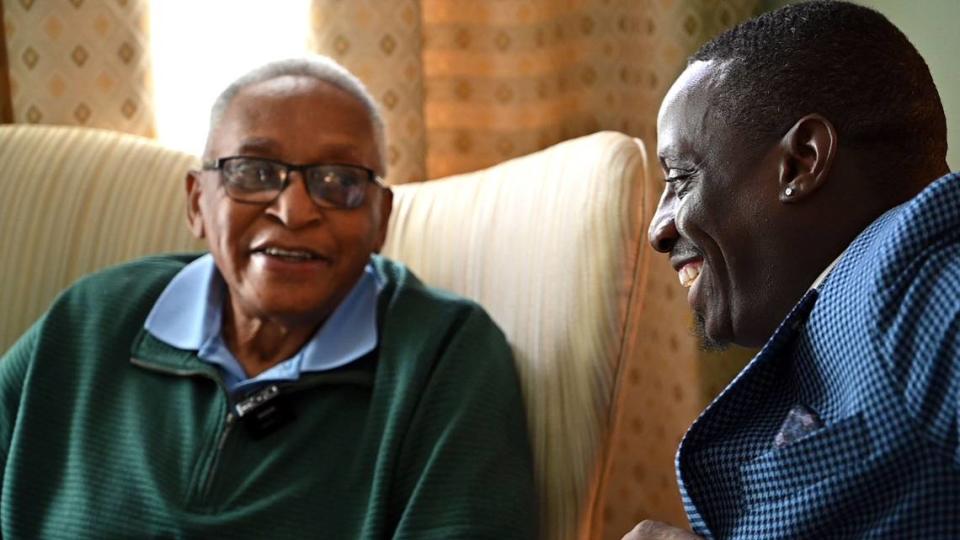
It’s the only program of its kind in Charlotte, says Aisha Strothers, the executive director of the $5 million endowment now managed by The Foundation For the Carolinas. The goal is to ultimately get to $10 million.
“The big thing here is the programming that we provide, that assists these children,” said Cecil Burrowes, The Greater Steps Scholars board chairman. “We can give you scholarships, that’s great. That gets you into the school. What happens while you’re in the school?”
The program began as the Charlotte Housing Authority Scholarship Fund, which was among many at the housing authority — renamed Inlivian in 2019 — to support economic mobility for the hundreds of families living in public housing, CEO and president Fulton Meachem told the Charlotte Observer.
The housing authority has financially partnered with Crawford and the scholar fund since it began.
“The reason that John reached out to our residents, is because we all know that their zip code, you know, doesn’t define the destination,” Meachem said.
Recipients from the first group in 1983 who grew up in subsidized housing are now working in professional fields. After completing undergraduate studies there are some who have earned advanced degrees, as well.
Over the past four decades, scholars have graduated from more than 70 colleges. Among them: the University of North Carolina system, Johnson C. Smith University, Queens University of Charlotte, Winthrop University, Howard University, Spelman College, Wake Forest University, Central Piedmont Community College and Duke University.
Degrees earned range from engineering, computer science, medicine and psychology to accounting, business management and social work.
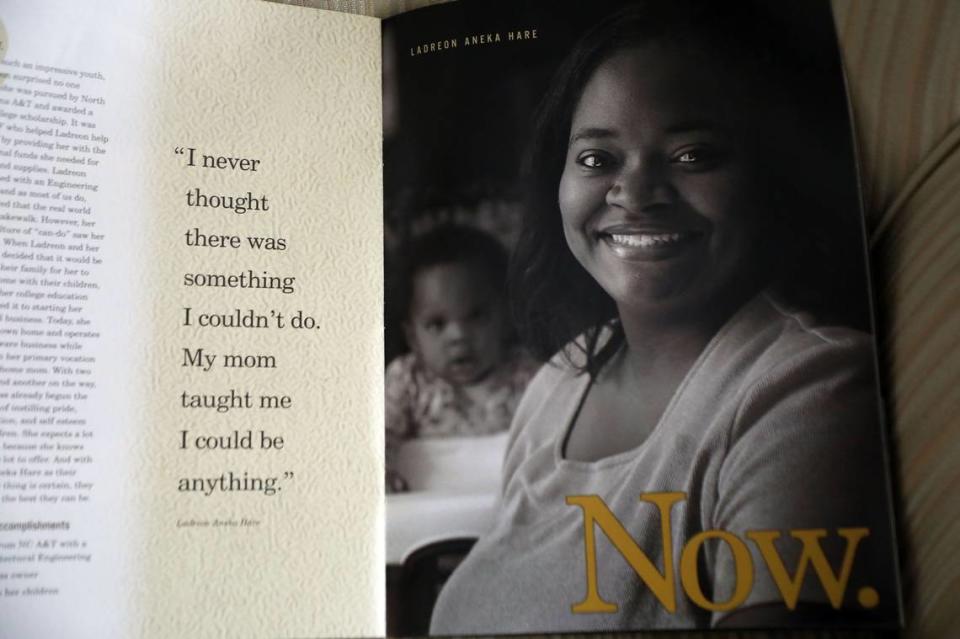
The scholars program expects to announce the newest class mid-summer, said Strothers, who has been managing it since 2015.
“I always felt like this was the right thing to do,” said Crawford, who is now 86. “I’ve kept my foot on the pedal. I guess I’ll be doing this until I pass out.”
This year’s milestone comes with a few honors for Crawford, who hails from South Carolina and is an alumnus of Johnson C. Smith University, UNC Charlotte and MIT.
This year, Crawford received one of Mecklenburg County’s highest honors, the Order of the Hornet, bestowed by the Board of Commissioners. Additionally, Gov. Roy Cooper’s office awarded him the Order of the Long Leaf Pine, the state’s highest civilian honor, recognizing his 40-plus years of service to youth in Mecklenburg County.
‘I need $300’
When Crawford started working at the housing authority four decades ago there were roughly 5,000 families living in dozens of public housing sites across the Queen City, he told The Charlotte Observer. “The average income was about $6,000 a year,” Crawford said.
Because Crawford grew up with strong Christian values, he wanted to help the youth living in these properties, some that had several hundred units and families challenged to make ends meet, let alone pay for college.
“I was wrestling with the Lord, ‘what is it that you want me to do?’ because I was still a devout Christian,” he said “I wrestled with that for about two years.”
One day, a young man living in Dalton Village (now called Arbor Glen) called Crawford seeking help.
“‘Mr. Crawford, I need $300 to go back to Winston-Salem State for my senior year,’” Crawford recalled him saying. “He worked and saved money over the summer, but came up $300 short. I told him, ‘We’ll find the money’ and we did. I’d ask anybody for money for my kids.”
That was October 1982.
“And the next school year, we had raised enough money to be able to send kids to college,” he said.
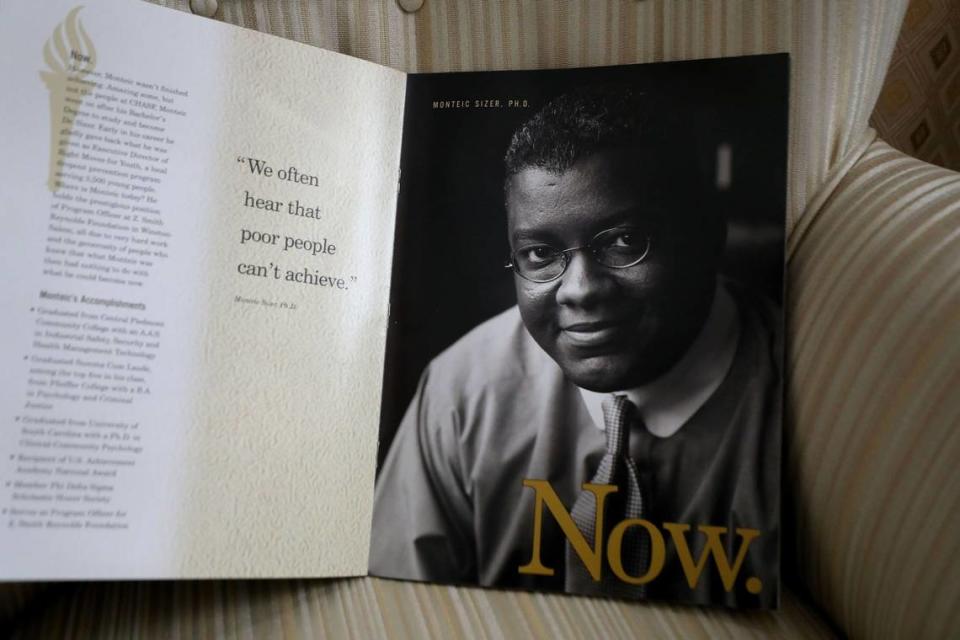
‘Hey we can do this’
But raising money didn’t happen overnight. It took cultivating.
The drive started with conversations with Crawford’s boss, housing authority leadership and the Mecklenburg County Board of Commissioners about starting a scholarship for kids living in public housing.
While Crawford wrote a full-scale proposal in 1986, he initially asked people to chip in. A first donation came from a fan of his idea, who gave $5. More money poured in, and with help from Arthur Griffin, now a Mecklenburg County commissioner, Crawford organized a fundraiser breakfast.
“I asked him to speak at our first breakfast,” Crawford said. “This is when I sent letters out to about 150 people asking them to come to a breakfast at 7:30 in the morning — and about 100 showed up.”
Crawford said he asked Griffin during the breakfast to help him raise $50,000 to start the scholarship. During the breakfast, the duo raised $3,500 in donations.
“That morning, I realized, ‘Hey, we can do this.’ And by the end of that year, we raised $64,000. The second year we raised $89,000,” Crawford said.
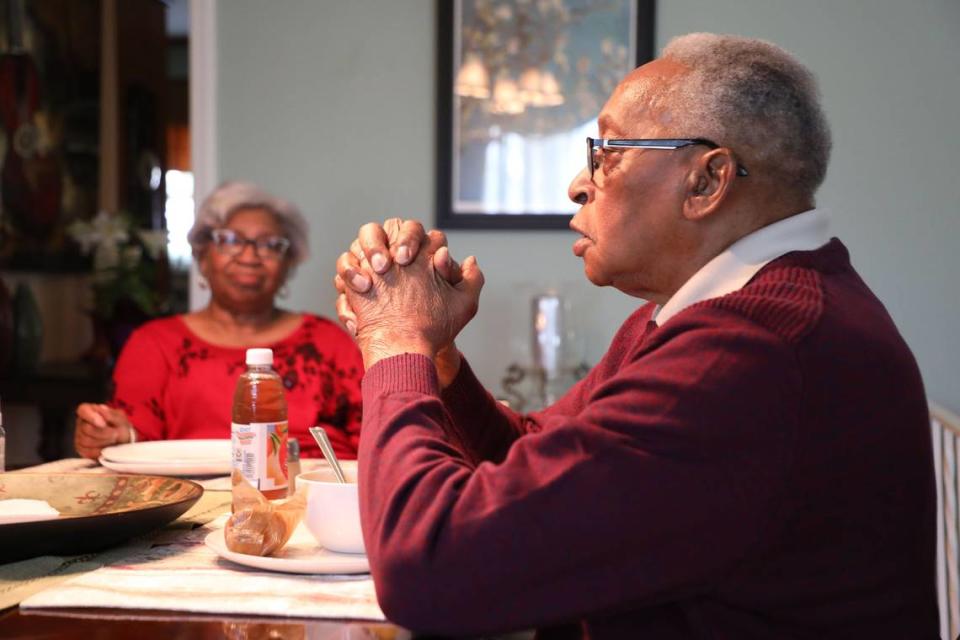
Word of the emerging scholarship spread. The donor breakfast became an annual event that drew a who’s who of power and influence across Charlotte.
That included former Bank of America CEO Hugh McColl; former Charlotte Mayor Harvey Gantt; other financial sector-leaders, such as Dale T. Halton, as well as former Charlotte Observer publisher Rolfe Neill.
“Rolfe became my friend,” Crawford said. “Every year we had a breakfast fundraiser. And Rolfe was our speaker the second year. And he also gave the fund $25,000.“
The Foundation for the Carolinas stepped into the arena in 1986, Strothers said. A donor read early coverage about the scholarship and suggested Crawford contact the foundation to establish an endowment to raise money, rather than an event here and there.
“(Donors) feel confident with being able to invest in the foundation,” Strothers said.
Lasting legacy
Fund managers say they already have a road map to sustain this distinctive Charlotte scholarship to make this legacy last long after Crawford and early organizers have stepped down.
Some 60 students, from 17 to 24 years old, benefit from the fund each year. They receive scholarships ranging from $2,000 to $6,000, depending on GPA and up to five years in college.
The numbers include an average of 25 new students and those still receiving scholarships every year they are in college. The application process opens in October, and organizers host recruiting and planning events throughout the Inlivian housing system. The scholarship has since been expanded for youth whose families receive housing choice vouchers or other subsidized housing.
“I’m looking to grow that number,” said Burrowes, the chairman for the past two years. He noted he wants to bring that number to 100, but not just recruiting students, also helping them succeed while in college with a mentorship program.
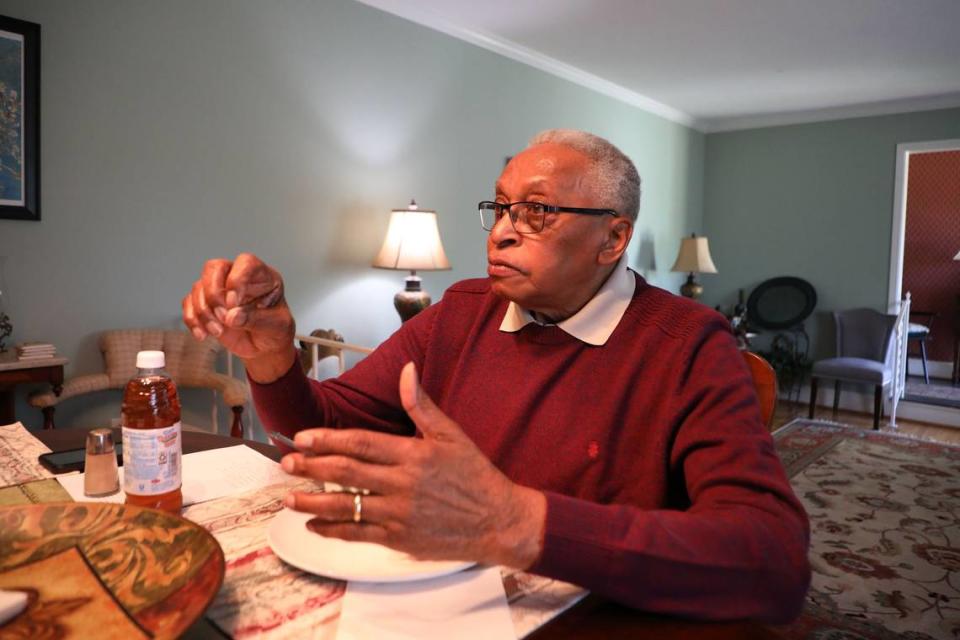
Some 92% of scholars are first-generation to attend college, Strothers adds. Having a mentor help them navigate getting into and staying in college makes a huge difference in the success rate. It’s programming that has gotten more robust since the early days.
“We paired each of our students with a one-on-one mentor that is ideally in their career field,” she said, adding it’s to give them encouragement, share advice, wisdom about opportunities.
Burrowes hopes to extend this opportunity not only to youth currently living at Inlivian-managed properties, but for youth whose families are on waiting lists for housing, provided the students don’t age out. Over the next 40 years, Burrowes hopes to increase industry representation on the board beyond the financial sector, and also connect more with other underrepresented populations.
“I want to amplify the brand ... on the lips, tongues of everyone who’s in the Charlotte area,” he said. “ ... we need to open up our engagement from a diverse ethnicity perspective ... so those families are well aware of who we are, what we do and how we can support them.”
More on the fund and scholarship program is available here.

